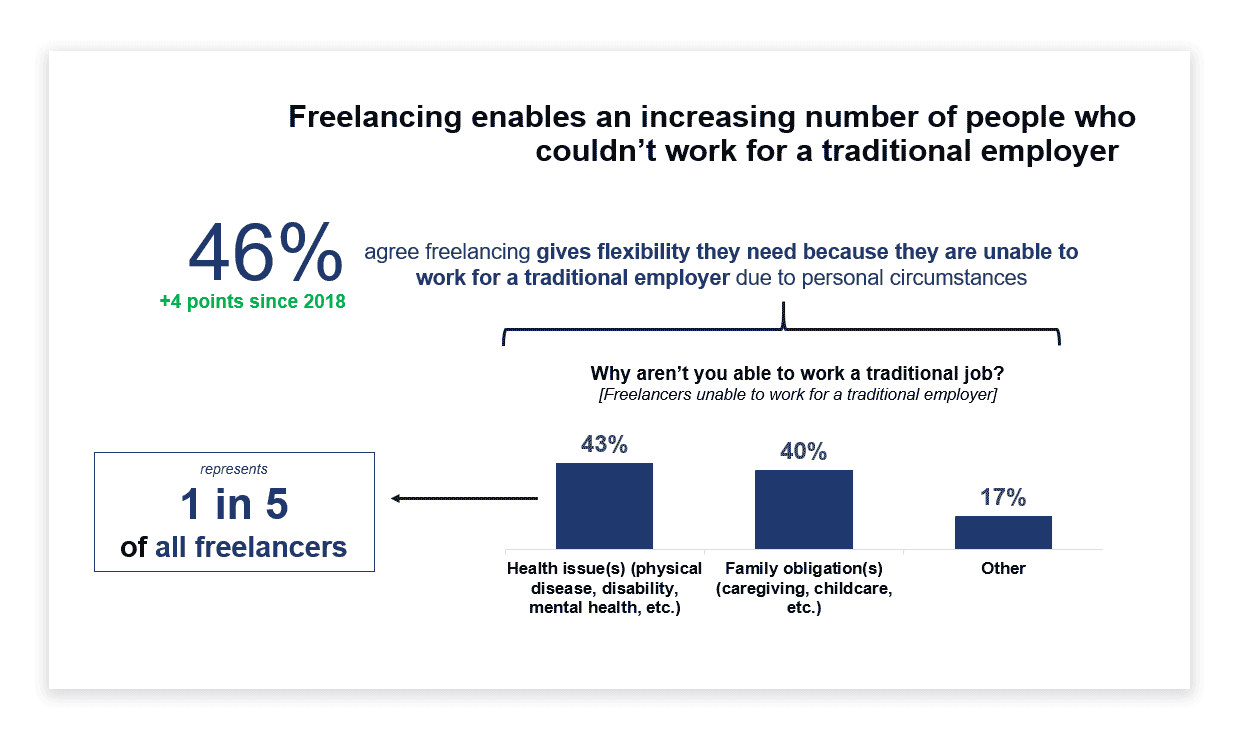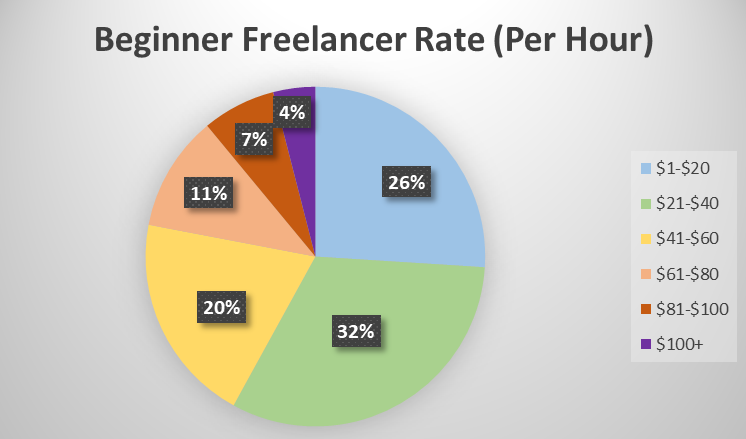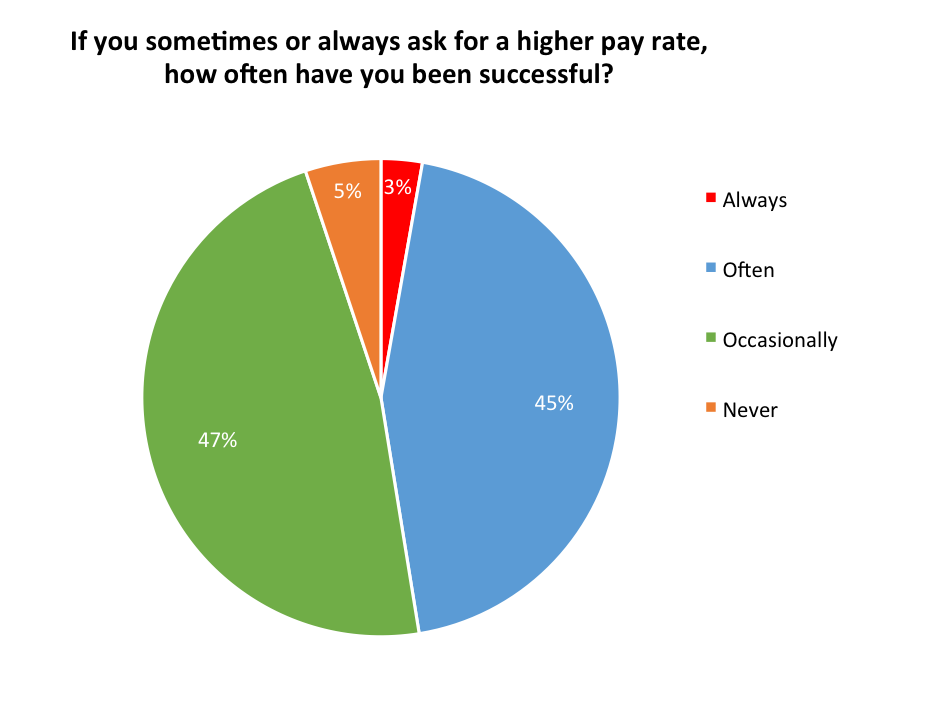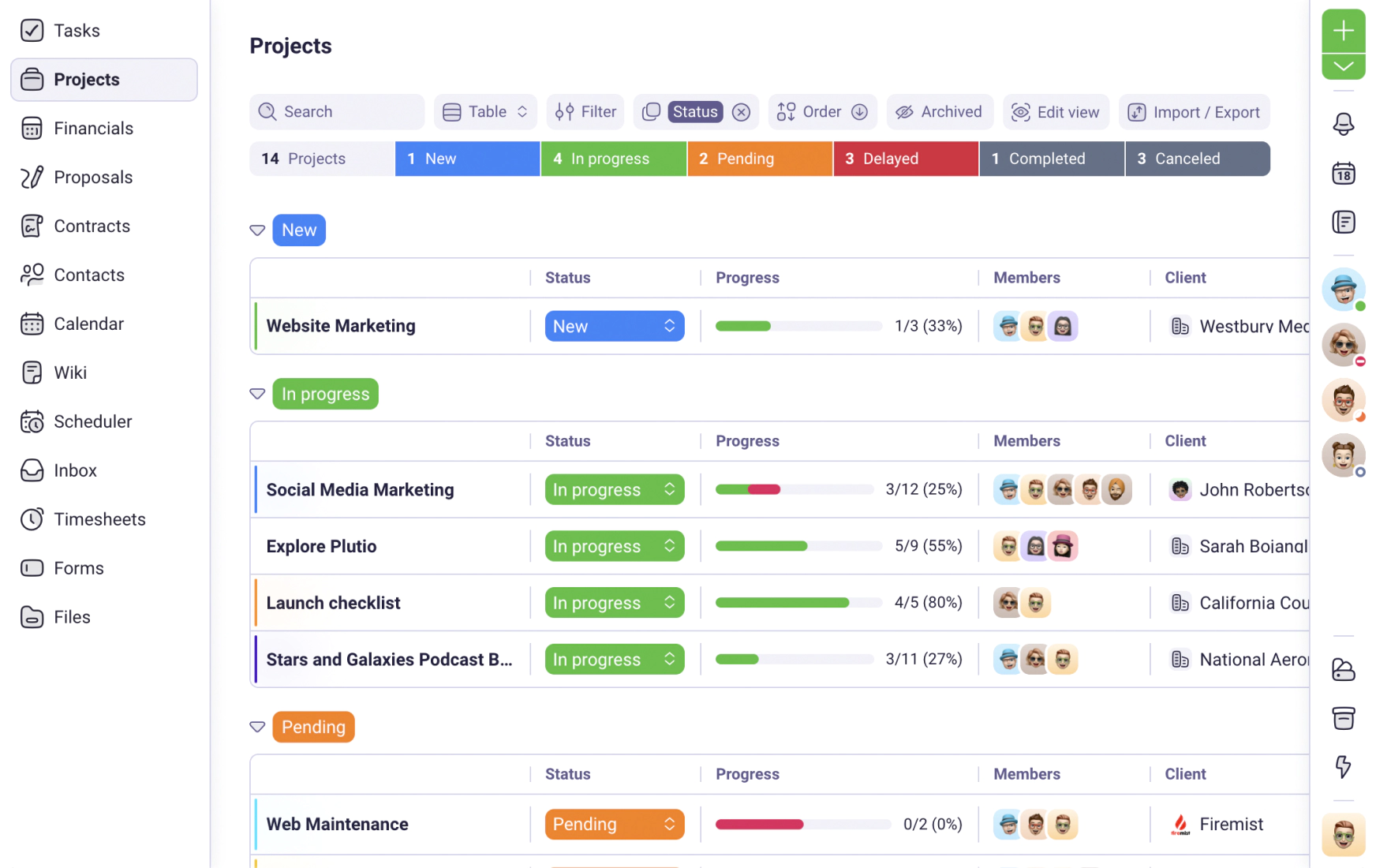We use cookies to personalise and enhance your experience.
Freelancing is becoming popular, providing anyone with the ability to have a flexible working environment and to work from anywhere.
An estimated 36% of the US workforce are freelancers. That number is growing as more workers leave their dreary offices.
But new freelancers can find themselves struggling with one of the most important aspects of this type of work. Negotiations.
Freelancers are responsible for negotiating with their clients. This can be frightening for those new to independent work.
While it can be difficult to talk about money, good preparation and confidence can lead to better negotiations, higher earnings, and more opportunities through referrals.
As someone who might want to improve their negotiating ability, here’s a quick guide of things you should know.
Know your worth
Often freelancers don’t get the recognition that they deserve. Confidence can be important in convincing a client of your worth.
Whether you’re communicating via email, in-person, or having a virtual meeting, your tone of voice needs to put your client at ease about hiring you.
Prospective clients will be able to tell if you’re unsure of your abilities. By knowing your strengths and weaknesses, you can ask for what you deserve without any doubts.
Use case studies from previous projects to show what you can bring to the table, to better justify how much you charge for your services. This brings up an important question.
How much should you charge?
One of the toughest stumbling blocks in any negotiation is the price. New freelancers might not know what their rate is, or should be. However, it’s often the first question the client thinks about.
Setting a rate for your work can make or break a career in freelancing. Prospective clients might balk at a rate set too high, losing you valuable business. Set one too low, and you could end up closing up shop before you’ve even started.

So, how do you know what to charge?
There aren't any cheat sheets to glance at and read off rates for different types of freelancing work. But it shouldn't be a guessing game to determine those rates, either.
The biggest mistake you can make is to search Google and use the first figure you get. Although many blog sites exist to guide freelancers, rates vary between different industries. They depend on a variety of factors, including skill, experience, type of work, and location.
Most importantly, the rates will be dependent upon you.
You will have a bare minimum. This is the amount of money you need to earn to put food on the table, keep the lights on, and put a little away in your savings. You can use rate calculators to get a ballpark figure or use your old salary as a starting point.
While your first thought might be the nine pictures of cats for your home office, consider the future of your business. You may want to account for coworking spaces, a printer, or even invest in an enterprise phone system.
Bear in mind that as a freelancer, you’re only paid for the work that you do. Remember to account for those sunny holidays.
Don’t be afraid to add to this base rate later on. Your skills and experience will count towards how much you can, and should, charge.
It can be helpful to ask other freelancers in the same industry about their rates. They might even be nice enough to give you some tips on how to better maximize your time.

Ask the right questions
Blindly spewing out quotes is a surefire way to end up working long hours for little pay. It’s like all those science teachers used to say. Always ask questions.
Research your client and listen to them. Ask questions to fill in any missing details you need to complete a project or discover more about it. Knowing what motivates your client will help you see their vision, making the partnership more personal.
There are no perfect set of questions to ask. List down a few basic ones to start. Over time you will develop your own comprehensive set of detailed requirements as you improve your process.
If you’re anxious about attending those first few meetings, don’t be afraid to hide behind emails or virtual meetings. Finding the best video conferencing for small business can make it a doddle to communicate with your prospective clients from the comfort of your own home.
So, how do I negotiate a price?
You know what your rate is and what the client wants. How do you settle on a price? Well, talking about money isn’t always easy. But there are a few points to keep in mind.
1. Don’t discount yourself
Firstly, don’t be tempted to offer a discount or misquote under pressure. Sometimes a client will want an on-the-spot answer, which you might not have. Don’t rush yourself. Tell the client that you will consider the work you have discussed and get back to them with a definite answer.
Always give yourself time to make sure that you’re compensated for the work you do and learn to say no if you’re not.
If they’re particularly pushy, give them an initial broad range, making sure to tell them it’s subject to change. Your needs are as important as the client.

2. Aim high
Secondly, aim high. No matter what budget the client has, they will always want to get the best value possible. As the customers in this scenario, they want excellent customer satisfaction.
Try to go with a rate a little higher than your standard charge and let the client haggle you down to the rate you want. They might even accept your initial offer, giving a little boost to your bank balance.
3. Agility is key
Thirdly, be agile. A client may only want to pay you an hourly or per-project rate. As long as you won’t be losing out financially, consider how flexible you can be in providing your services.
However, agility doesn’t just apply to pay. With more businesses opting for cloud communications, you may have to use client software or services to communicate and complete tasks.
As a freelancer, you are your brand. Building positive relationships will have companies coming back to use your services time and again.
Finally, remember that negotiating isn’t about winning. It’s about coming to an agreement that is beneficial to both parties. It’s less of a market stall haggle and more of a conversation over what to buy at a restaurant.
Celebrate with a signature
A common mistake by novice freelancers is to finish negotiations with a verbal agreement and...that’s it. They start work immediately after and often end up paying the price.
As a freelancer, you’re responsible for your finances. It’s your responsibility to chase down payments from clients and make sure you get the right amount.
With 60% of freelancers concerned about late payments or being stiffed by a client, having a binding legal document makes things a little easier for everyone.
Always ensure you have a contract with the terms listed, including when you’re getting paid before you begin work.
Remember to sign a new contract if you renegotiate terms and send out invoices on time. If you don't, you might find yourself missing valuable paychecks.

Be prepared to walk away
Imagine you’re on hold with a call center and their handle time is almost two hours. Something in you reaches for the end call button and finally silences the abomination of musical tones. Well, that’s your walk-away point.
Everyone has one, whether it’s walking away from an argument or a TV show that keeps getting worse by the minute. Don’t get stuck in the long traffic jam of negotiating, driving around the same roundabout and getting nowhere.
Sometimes it doesn't work out. The client wants too much for too little (or nothing at all) and has terms you can’t agree to. In these cases, it’s best to walk away and focus on other clients.
Your time is too valuable to spend it on someone who won’t recognize your worth.
If the client gets back in touch, approach any future offer with a grain of salt. It took declining a job for you to get paid, so who knows what other fiery hoops they may ask you to jump through.
Negotiation is a conversation
Negotiating isn’t something to be afraid of or something to win. It’s an essential part of everyday life for a freelancer. The more you do it, the more you’ll get to grips with it.
It’s more of a conversation. A good conversation requires both parties to listen and contribute equally, treating each other with the respect they deserve.
Remember your skills, your rates, and when to walk away. The client wants to hire you. Make sure they recognize your worth when they do.
Have you tried Plutio yet?
The only app you need to run your business and get work done.
Try Plutio for FREESupercharge your business
The complete toolkit to run your business
The intuitive all-in-one solution to manage and collaborate on projects, share files, build forms, create proposals, get paid, and automate your workflow.
No credit card required


